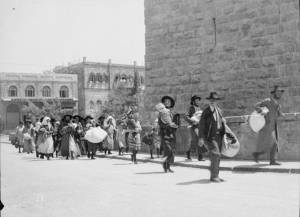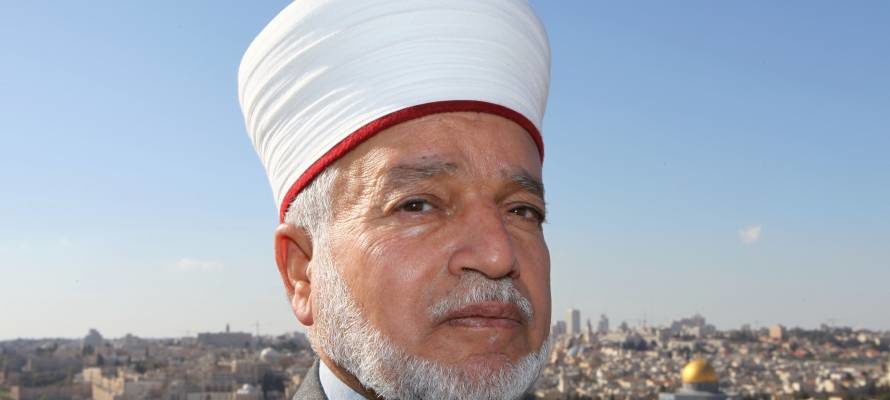‘There has never been a Jewish Temple on the Temple Mount’, claims the Grand Mufti of Jerusalem, even though its existence is clearly proven by archaeological finds and documentary evidence from the Roman period, as well as historical Islamic texts.
By: Sara Abramowicz, World Israel News
There was never a Jewish Temple on the Temple Mount, Grand Mufti of Jerusalem Sheikh Muhammad Ahmad Hussein charged in an interview with Israel’s Channel 2 News. The current wave of Palestinian violence is fueled in large part by long-standing false allegations of a Jewish plot against Al-Aqsa Mosque.
The Sheikh told Channel 2 that the holy site was a mosque “3,000 years ago, and 30,000 years ago,” and has been “since the creation of the world.”
“This is the Al-Aqsa Mosque that Adam, peace be upon him, or during his time, the angels built,” he said.
Al-Aqsa Mosque was built in the 8th Century by Umayyad Caliph Abd al-Malik ibn Marwan, replacing a small prayer house built in the 7th Century by Rashidun Caliph Umar ibn al-Khattab. The existence of the Jewish Temples on the Temple Mount is clearly proven by archaeological finds and documentary evidence from the Roman period, as well as historical Islamic texts.
Sheikh Hussein was appointed Grand Mufti of Jerusalem in 2006 by PA President Mahmoud Abbas to replace Ekrima Sa’id Sabri, who also accused the Jews of plotting against Al-Aqsa. “The Haram al-Sharif belongs to the Muslim. But we know the Jew is planning on destroying the Haram… The majority of the Jews want to destroy the mosque. They are preparing this as we speak,” he said in a 1999 interview.


Jews flee the Old City of Jerusalem during the 1929 Palestine riots. (US Library of Congress)
Accusations of Jewish plots against Al-Aqsa Mosque originated with Grand Mufti Sheikh Haj Amin al-Husseini in the 1920s. Husseini conducted a major fundraising campaign to restore the Mosque and the Dome of the Rock, which had fallen into disrepair under Ottoman rule. In this campaign, he transformed the site into a symbol of Arab Nationalism and accused the Zionists of trying to seize control of the Temple Mount and destroy Al-Aqsa.
Under the atmosphere of mistrust created by Husseini’s agitation, minor alterations to the Western Wall prayer plaza, such as the use of chairs by worshippers during the Yom Kippur fast, were considered a threat. This led to the outbreak of the 1929 Palestine riots, in which 133 Jews were killed and 339 were injured, including at least 67 in Hebron and 18 in Safed.


